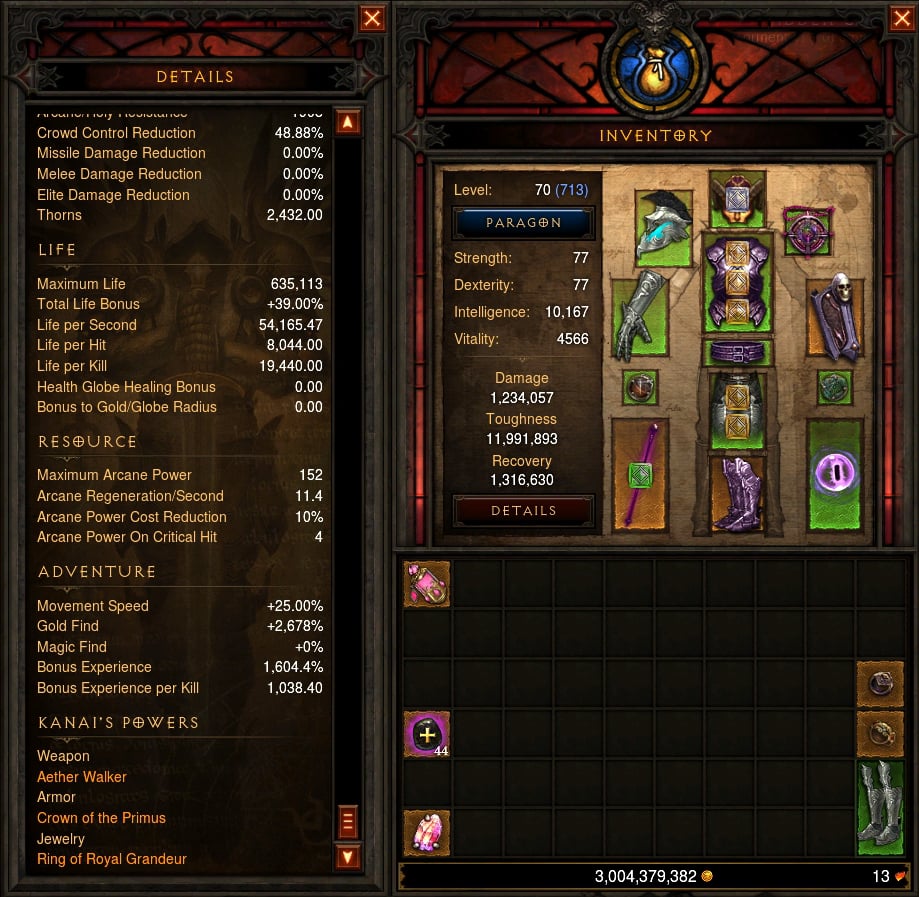Character Statistics
How can we represent the attributes that make a character different from the others? How can we represent, in game, character's traits we have defined with a written description?
One classic answer is: "With statistics!" (shortened to just Stats). Stats are a numeric representation of aspects of a fictional character (or unit, or building, or even an entire galaxy). The concept of Stat was introduced in pen and paper RPGs, and indeed is extremely popular in RPG video games, but its versatility and universally understandable concept made stats incredibly useful in many other genres.
Stats can be used to represent the physical or mental attributes of a character, such as Health Points (HP), Strength, Resistance, Speed, and Intelligence:

Diablo is famous for the huge amount of stats and part of the experience is to optimize and max them out
Stats don't have to be numbers though. In The Sims 4, for example, you can define character attributes by choosing aspirations, which will...






































































